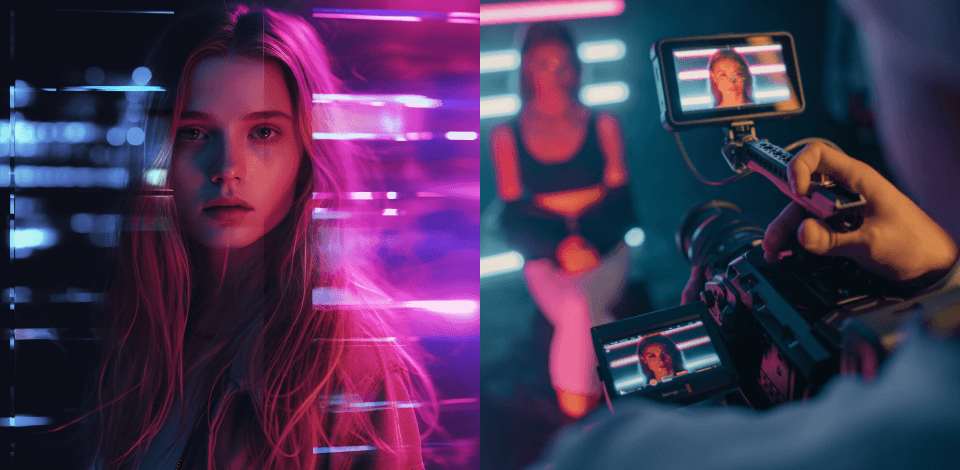
Select the best camera for music videos to create content that will become popular on YouTube and TikTok.
In this article:
If you aim to make your videos and music tracks really pop, you should get a feature-rich music video camera. A good device ensures you get the crispest images and will be able to shoot in 4K.
To make your search easier, I tried out three cameras. I classified them as the best, the least pricey, and the most expensive. Based on my test results, it is obvious that you can pick a good camera for shooting music videos, no matter what your budget is.
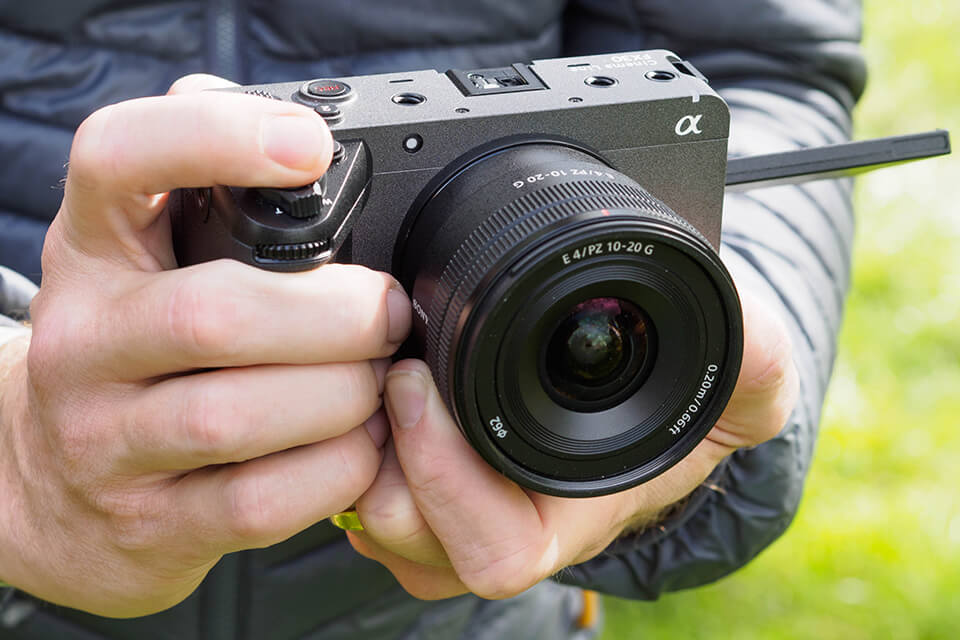
Type: Cinema | Sensor: APS-C | Video Quality: 4K/120p | Resolution: 26MP
When I was on the hunt for the best camera to shoot music videos, I realized that many of them are too expensive for the average person. That's when I stumbled upon the Sony FX3.
It comes at a price similar to average cameras, but it packs in cool features like a customizable S-Log3 gamma curve, flexible ISO, and Cine EI Quick and Cine EI Log shooting modes. Undoubtedly, it is capable of creating impressive music videos.
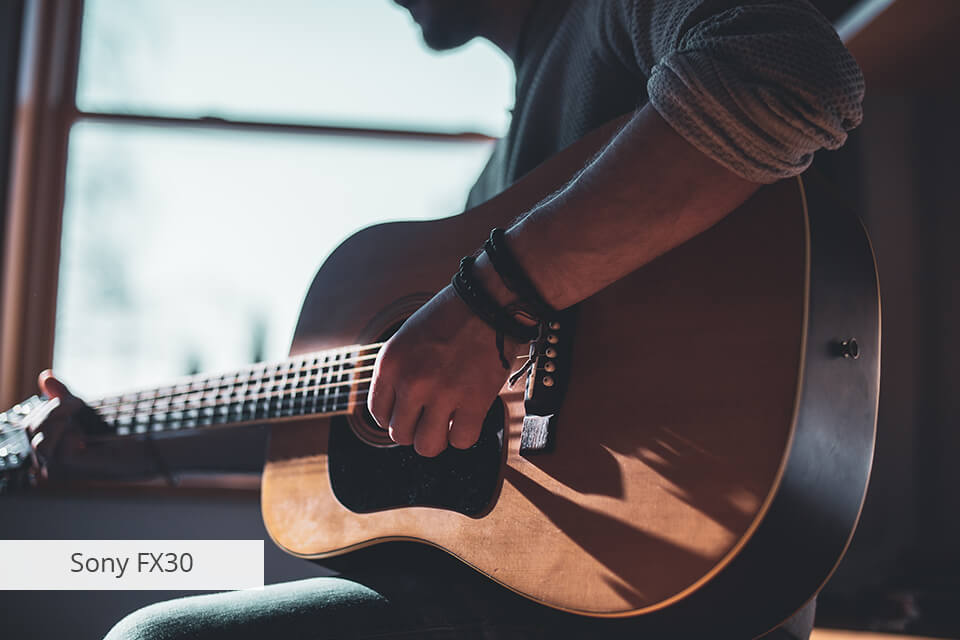
This video camera for YouTube comes with a unique super-sharp sensor that outshines the usual ones. With this camera, you can record fantastic footage, savoring the benefits of high-quality filming.
The most praiseworthy feature is that it can capture slow-motion stuff, perfect for music videos. But remember that using this feature can result in a bit zoomed-in look.
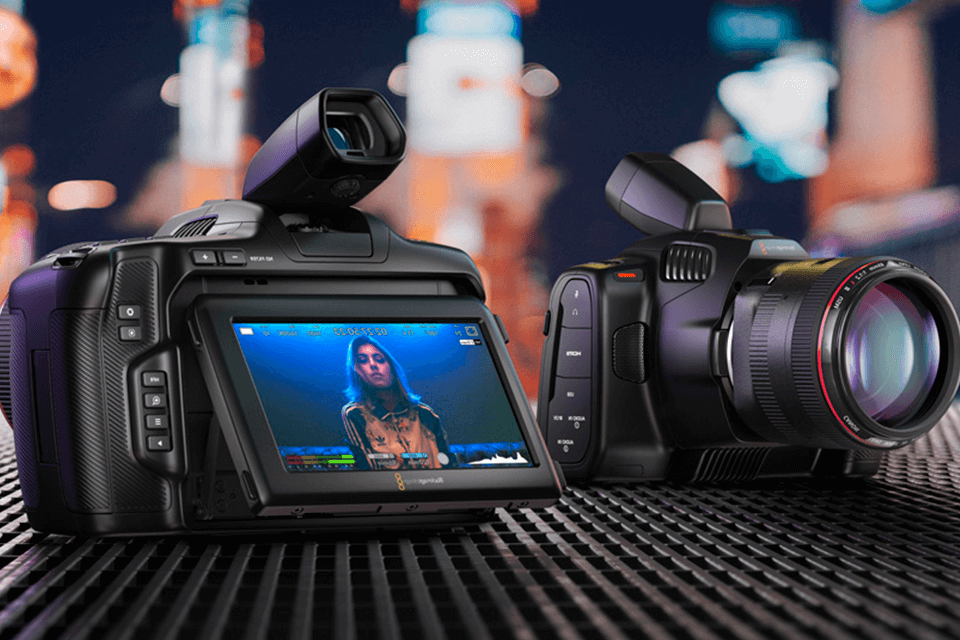
Type: Cinema | Sensor: Super35 CMOS | Video Quality: 6K/50p
This camera it gives you fantastic image quality without burning a hole in your pocket. It comes with a strong sensor and plenty of recording choices, which is another reason to choose it for music footage recording.
I was really impressed by how skillfully it copes with 4K and 6K resolutions. I like it some much that I can express my creative vision, capturing striking videos with blurry backgrounds and gorgeous bokeh effects.
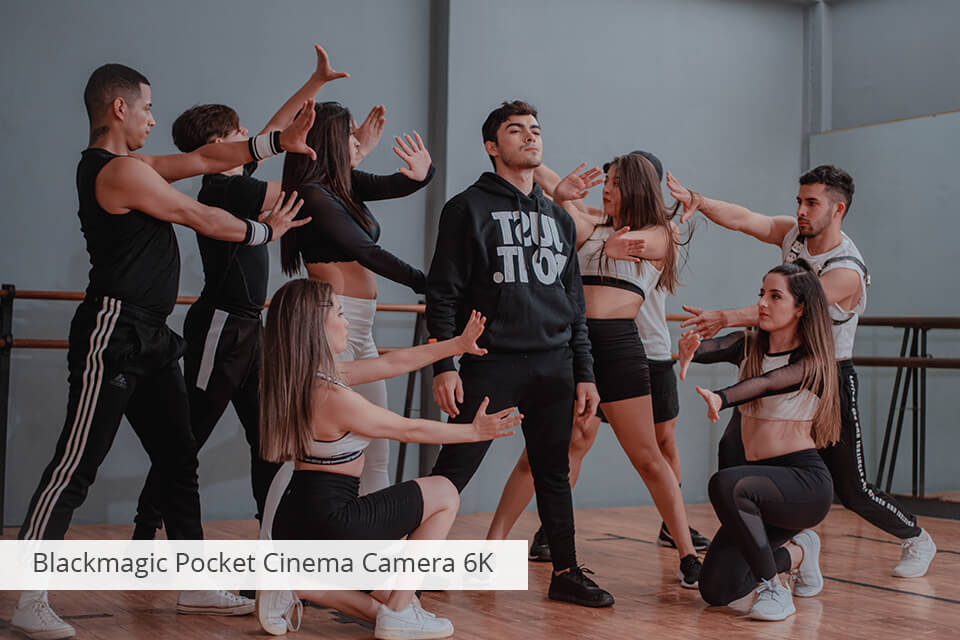
This camera is compact and light, so you can easily carry it around to film on the move. But even though this cinema camera delivers fantastic image quality, it may not be the most fitting option for beginners.
Since it has lots of features and settings, it can feel confusing if you're just learning the ropes of filmmaking.
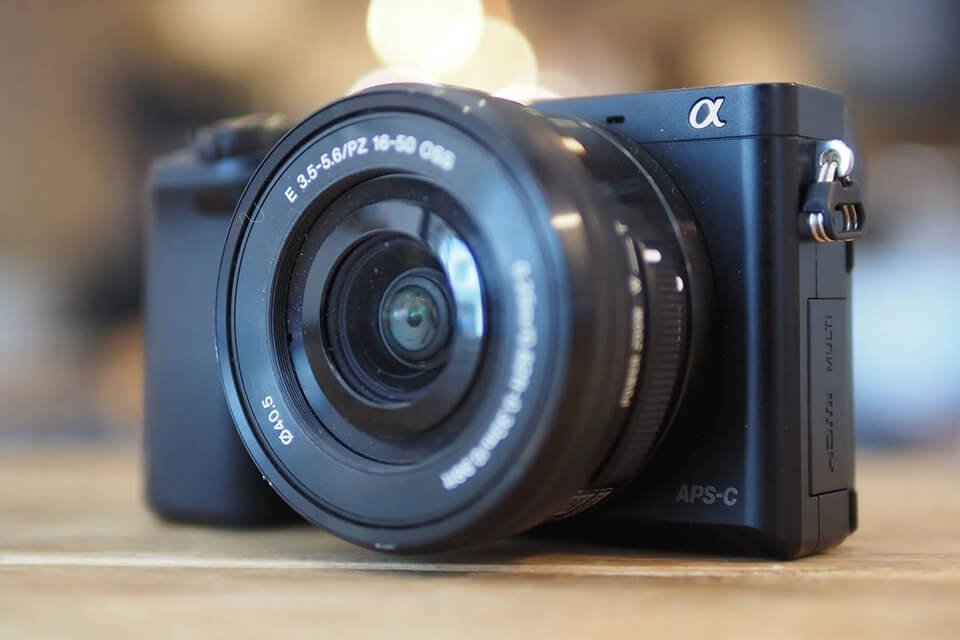
Type: Mirrorless | Sensor: APS-C | Video Quality: FullHD/60p | Resolution: 24.3MP
A bragging point of Sony A6000 is its silent shutter, which means you can film music videos without noisy clicks. It's also awesome in low light, letting you capture fantastic footage even in not-so-bright places.
The super-fast auto-focus deserves a special compliment. It ensures you catch every moment without a hitch.
The Sony camera is really great when it comes to video quality. It can record HD videos with different frame rates, including super smooth 60p.
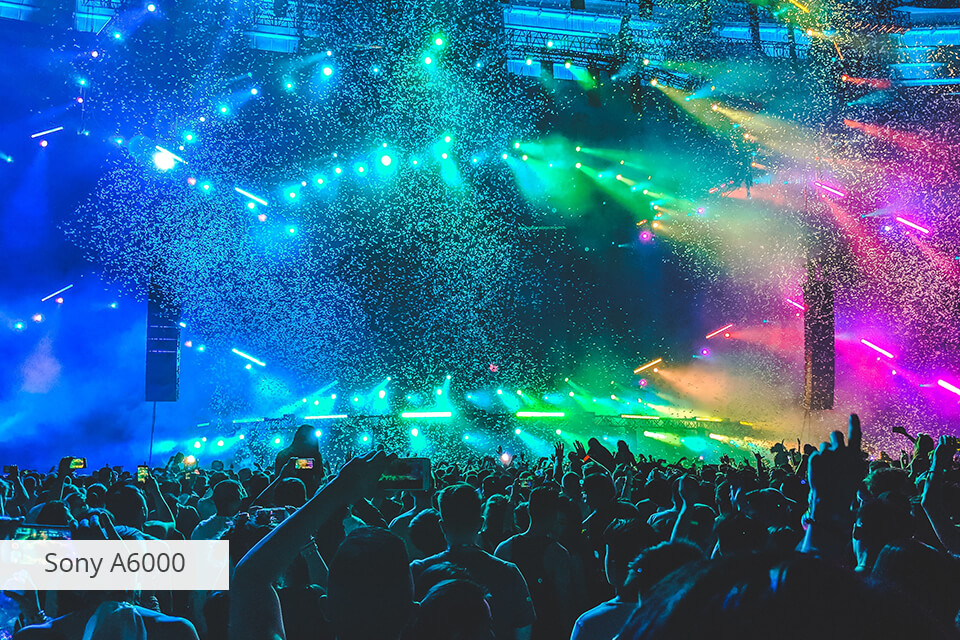
The dynamic range is impressive too. You can highlight details in both shadows and highlights, which is a rare thing with other models.
Keep in mind that this camera doesn't have 4K. It can be a drawback for some, but that isn’t a deal-breaker for most users.
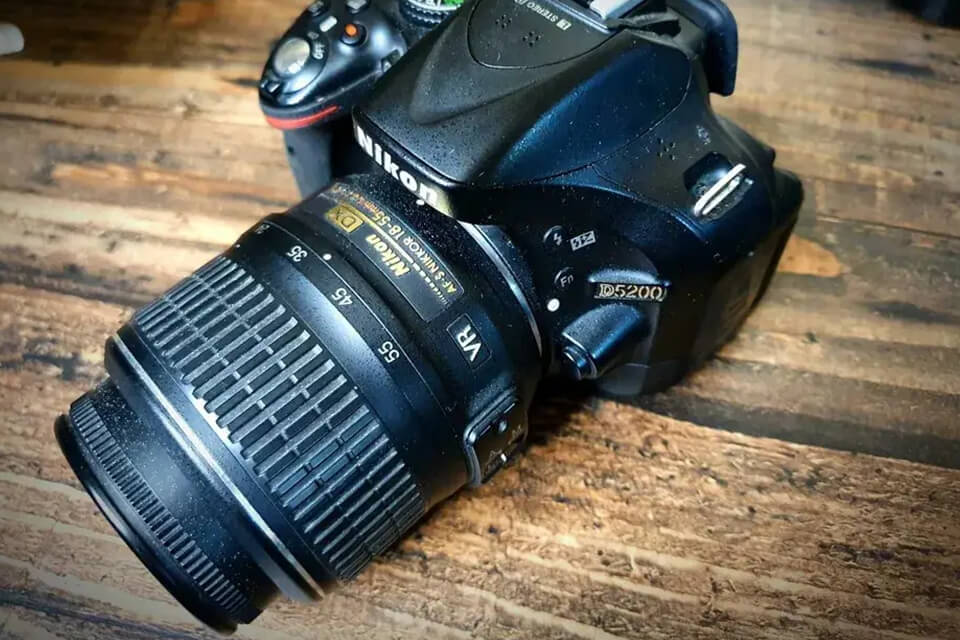
Type: DSLR | Sensor: APS-C | Video Quality: FullHD/30p | Resolution: 24MP
Nikon D5200 records in Full HD, grabbing up to 60 frames per second for sharp and detailed videos.
Plus, it excels in low-light conditions with its awesome ISO performance. In other words, you can fully rely on this model when filming epic live performances or concerts in dimly lit venues.
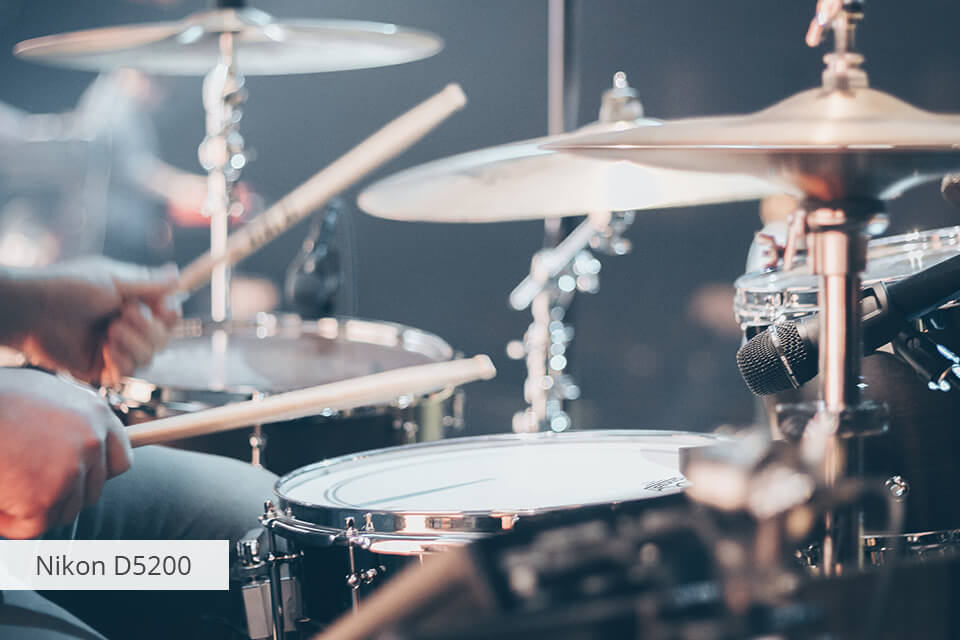
I've realized this camera is great for beginners. It's user-friendly, has a big swivel LCD screen and a small, lightweight body.
You can easily carry this video camera for sports around and shoot on the fly.
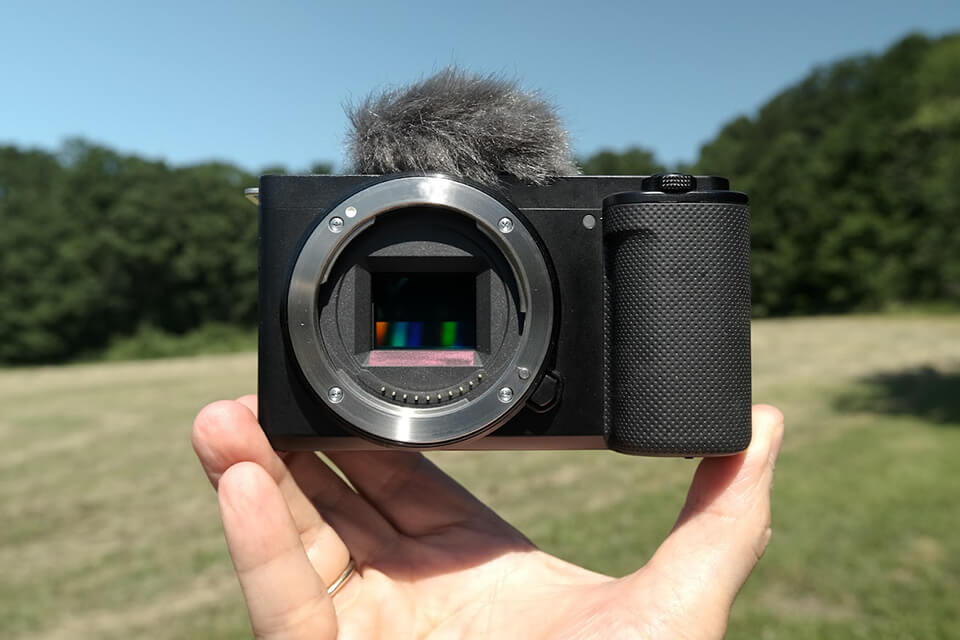
Type: Mirrorless | Sensor: APS-C | Video Quality: 4K/30p | Resolution: 24.2MP
Sony ZV-E10 can be the best music video camera for people just starting out in filmmaking or blogging, especially if they are into music. It can record in 4K at 30p, which is quite remarkable for a beginner's camera.
The flip screen can be adjusted at different angles. So, it is very easy to film yourself, whether you're holding the camera or it's on a tripod.
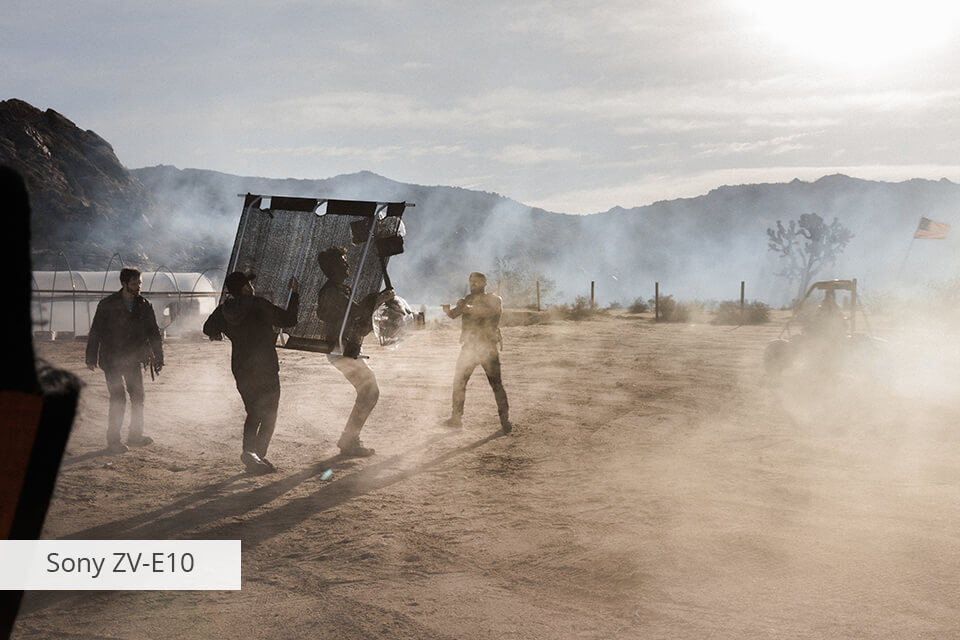
This vlogging camera has a built-in Directional 3-Capsule Mic. It captures voices really well, even in noisy places.
Besides, you can forget about shaky footage thanks to the Active Mode electronic image stabilization.
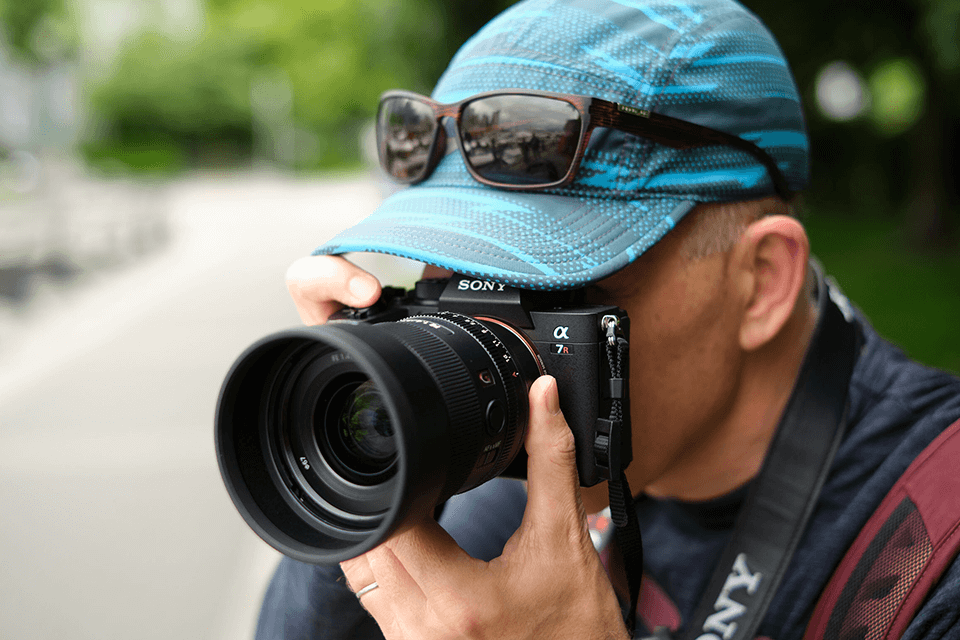
Type: Mirrorless | Sensor: Full-frame | Video Quality: 4K/60p | Resolution: 33MP
Sony A7 IV is loaded with features that are super-helpful for shooting music videos. The autofocus works quickly and accurately, even in tricky lighting.
Besides, there is a large sensor that prevents common problems like lens flare and blur.
Plus, the camera has a gyroscopic stabilization feature. You can use it to minimize hand-shake when shooting music videos without a tripod.
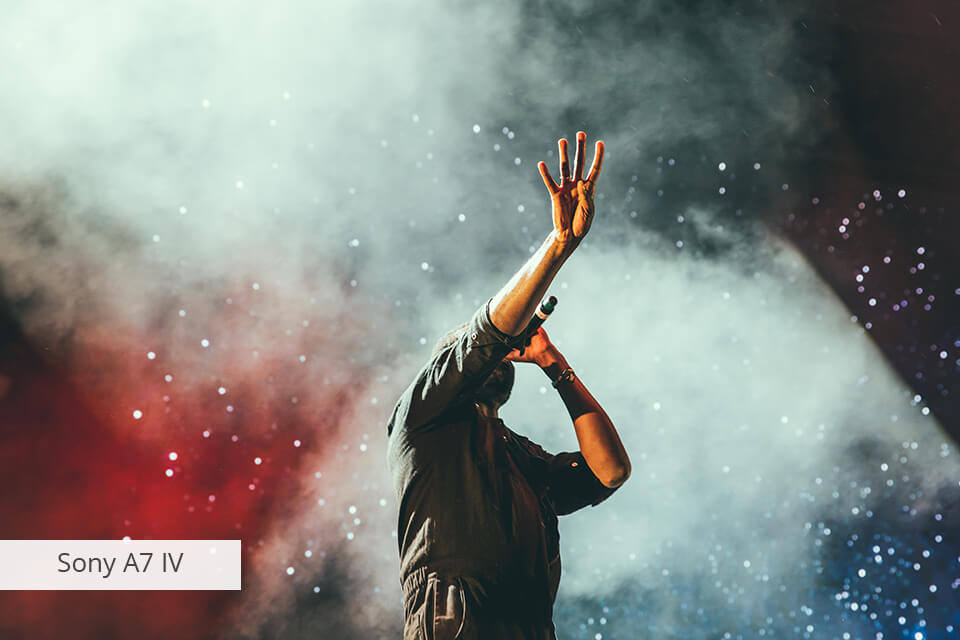
You can improve image quality using different in-built Creative Looks and Soft Skin effects. On top of that, this camera for sports comes with a big buffer depth, so you can keep shooting non-stop without fretting over running out of space on your memory card.
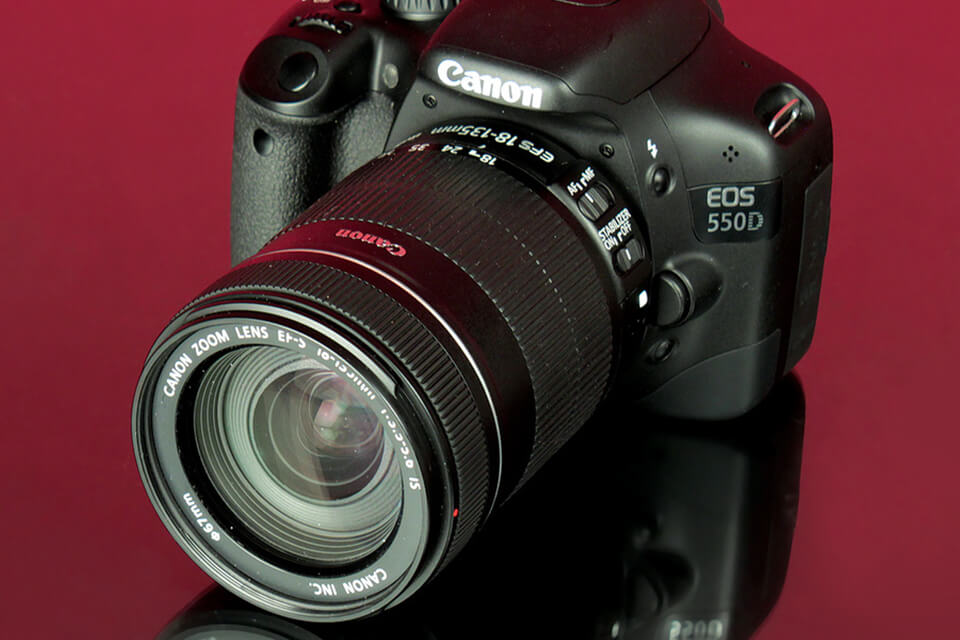
Type: DSLR | Sensor: APS-C | Video Quality: FullHD/30p | Resolution: 18MP
Being one of the most popular cameras for music videos, Canon EOS Rebel T2i appeals to users with an improved movie mode. You can record HD videos at different frame rates like 30fps, 24fps, and 25fps for PAL regions.
Thus, you can feel more flexible when hunting a particular mood and style in your clips.
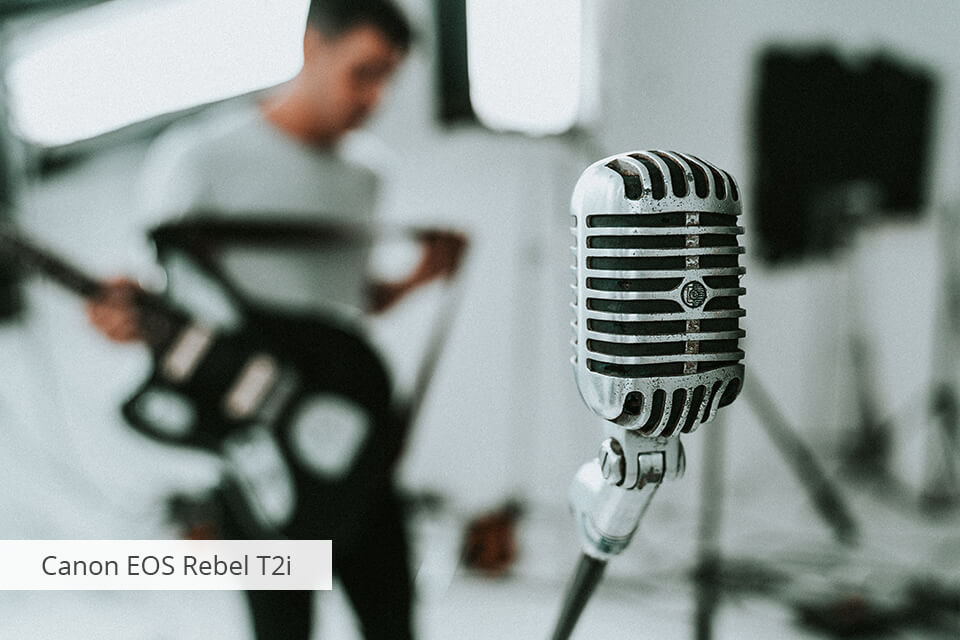
In terms of sound recording, this Canon camera for video has an embedded microphone that can record a monaural audio track.
However, remember that it can gather surrounding noises recording. So, you may want to purchase an external microphone to enhance the sound quality.
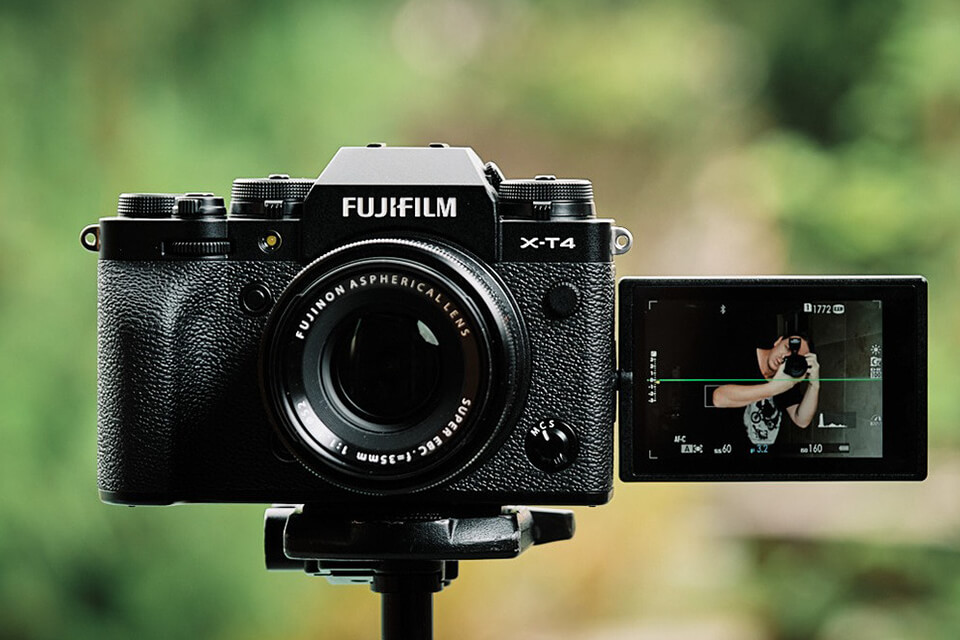
Type: Mirrorless | Sensor: APS-C | Video Quality: 4K/60p | Resolution: 26MP
Fujifilm X-T4 can shoot high-res 4K videos at 60 frames per second and full HD videos at 240 frames per second. Thus, you can record super-smooth footage for your music videos.
The camera is also praised for its articulating screen and durable body. So, it can produce clear footage even in challenging conditions.
This music video camera is fantastic for recording in different settings, thanks to its built-in image stabilization and advanced autofocus.
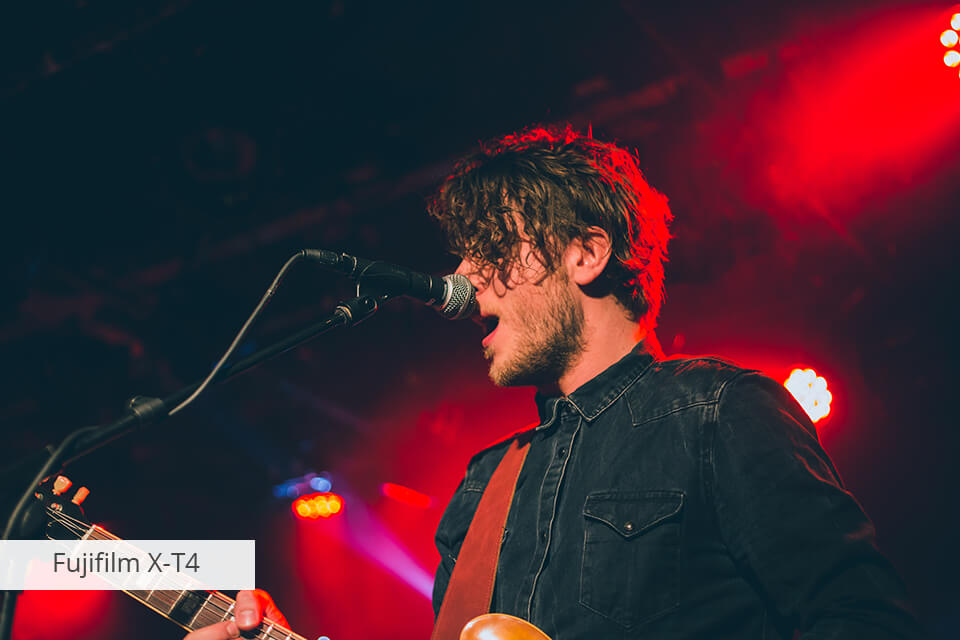
However, there are a couple of drawbacks to keep in mind. Firstly, the touchscreen isn't responsive when it's wet, and using it with gloves can be a bit challenging.
Secondly, it doesn't allow you to zoom in on a specific part of an image during playback, which may be a bit frustrating for some users.
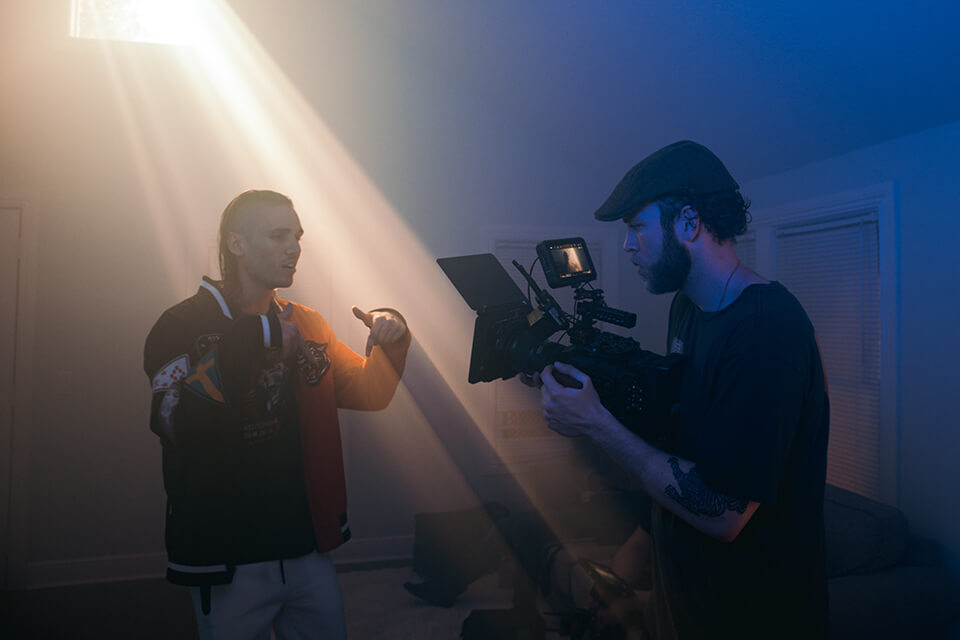
When it comes to shooting high-quality music videos, professionals often use cameras from these well-known camera brands:
Arri Alexa. It's the standard for professional filmmaking, and the brand has different models for different production needs. There's a small and flexible Alexa Mini, and then there's the top-of-the-line Alexa LF with a bigger sensor. With these options, filmmakers can get creative with lenses, aspect ratios, and resolutions.
RED. These cameras have a modular system, so cinematographers can set up their gear just the way they need it for different projects. Red cameras fit smoothly into the professional post-production process, as they support the top editing and color grading software.
Sony Venice. This is a full-frame digital cinema camera known for its fantastic color quality and creative flexibility. The sensor size gives you a broad view and performs really well in low-light conditions.
The choice hinges upon budget, but these are the cameras that professional cinematographers typically use for recording films, commercials, and TV shows. Their prices range from $1,500 to $65,000.
| Cinema | DSLRs/Mirrorless | |
|---|---|---|
|
Image Quality |
Higher resolution |
High-resolution sensors |
|
Dynamic Range |
Greater dynamic range |
Varied dynamic ranges depending on model |
|
Video Recording Capabilities |
RAW recording High bitrates Various codecs |
Limited RAW options Varying bitrates |
|
Lens Options |
Compatibility with cinema lenses |
A wide range of lenses |
|
Connectivity & Ports |
Extensive I/O options for professional workflows |
Standard ports for connectivity and recording |
|
Unique Features |
Timecode support Built-in ND filters |
Compact size, versatile usability |
High-end cinema cameras are unrivaled at providing top-notch cinematic quality, whereas DSLRs and mirrorless cameras are more flexible and user-friendly tools for various video projects, including music videos.
In my opinion, a camera is just a small piece of the puzzle in making a music video. If you want to get a captivating music clip, it's a good idea to hire a director and a director of photography (DP). Share your ideas with them and ask them to help you choose the appropriate camera, lenses, and lighting. They'll also guide you on the type of crew needed for the job.
Once you're done with recording, you'll need to address a professional video editing service. Experts will help you edit the footage. They can perform such tasks as cutting, adding effects, adjusting colors, and syncing visuals with the music.
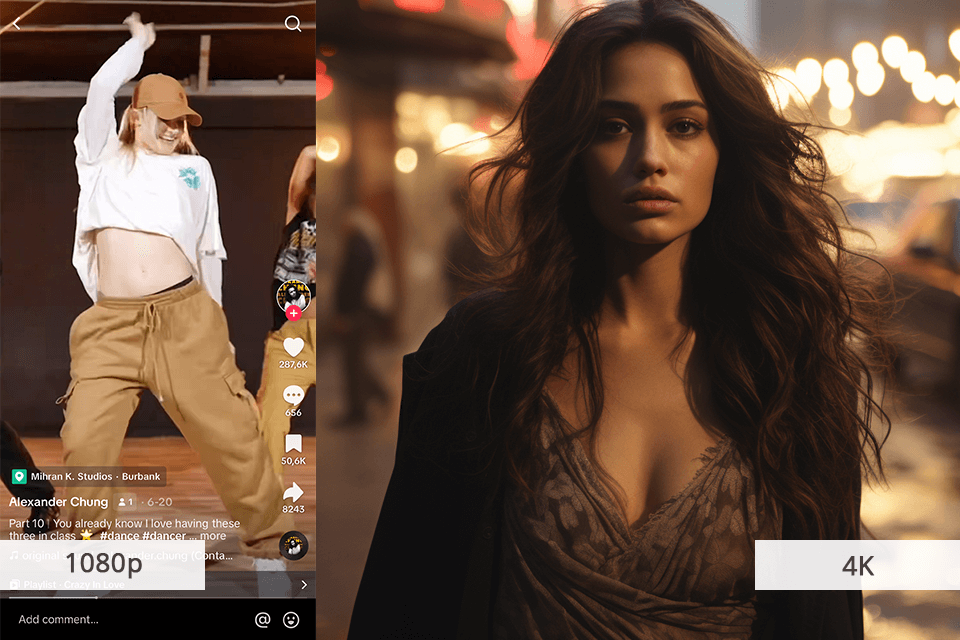
Resolution. The video quality depends on what you are shooting and what purpose you have. A music video for TikTok does not have to be in 4K. But this resolution is highly advisable for a video for television or advertising.
Interchangeable lenses. By switching lenses, you can make your videos look professional and interesting. Besides, you can play around with various focal lengths and depths of field. So, when you're picking a camera to shoot music videos, make sure it allows for using interchangeable lenses.
Frame rates. Many experts suggest that 30fps is sufficient. However, if you're aiming for stunning slow-motion shots, go for 60fps or even higher.
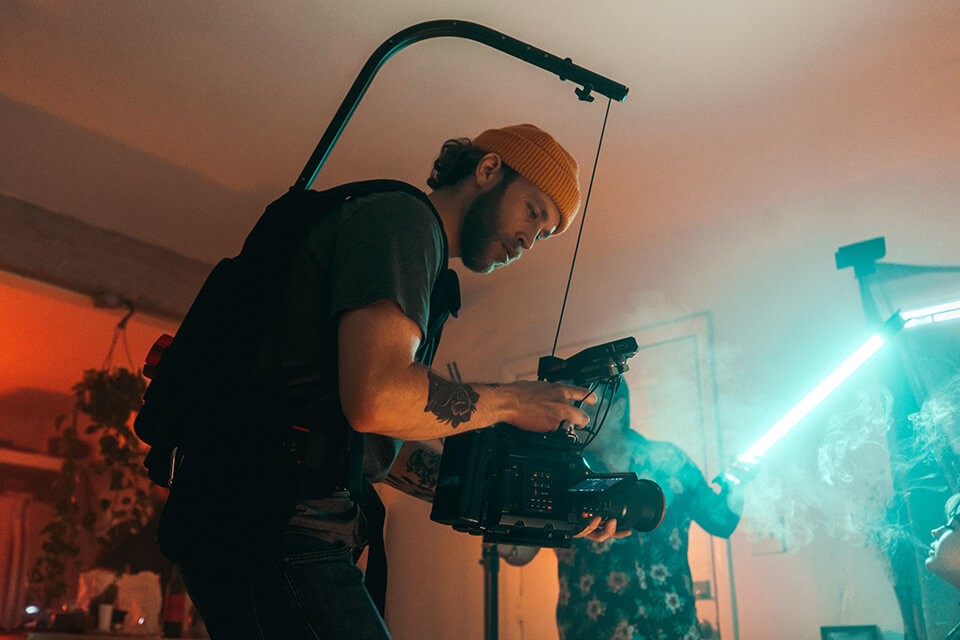
Stabilization. Choose a camera that can smoothly follow movements and handle sudden actions without making your footage shaky. Image stabilization is extremely important for this task.
Battery life. Opt for a camera that can work for a long time before requiring a recharge. About 2 hours of video shooting on one battery is a good indicator.
| Sony FX30 | Sony A7 IV | Canon EOS Rebel T2i | |
|---|---|---|---|
|
|
My Choice |
Professional |
Cheapest model |
|
Video Resolution |
4K/120p |
4K/60p |
FullHD/30p |
|
ISO |
100 - 12,800 |
100 - 51,200 |
100 - 12,800 |
|
Low-Light |
✔️ |
✔️ |
✔️ |
|
Image Stabilization |
✔️ |
✔️ |
✔️ |
|
Battery Life |
115 min |
120 min |
24 min |
Picking the best music video camera depends on what you need, how much you can spend, and what video quality you want.
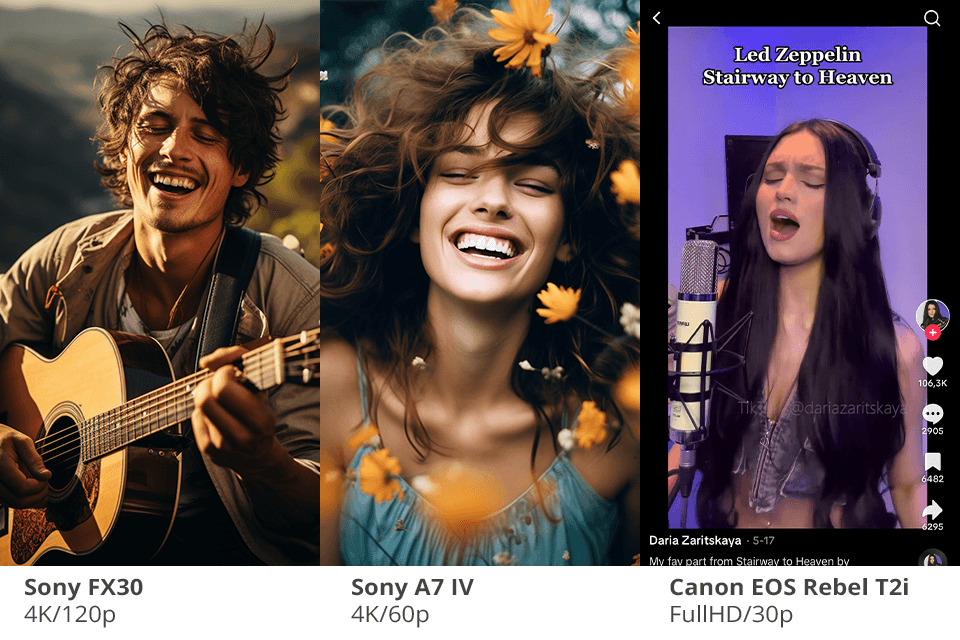
The videos produced by Sony FX30 and Sony A7 IV are better in quality compared to those from the Canon EOS Rebel T2i. I particularly appreciate the FX30's color accuracy without any distortion. While the T2i is good for shooting videos for social media, it's not the best choice for professional music video production because of its lower resolution and fewer features.
You need a music video camera, lighting equipment, appropriate transportation, extra camcorder batteries, and a tripod.
For a no-budget music video, expect to spend around $2.5k just to cover location, meals, etc. This assumes you have a green crew working for essentially free. The average music video budgets range from $10-15k. This amount typically covers a one-day shoot with a minimal crew at reduced rates and various rental discounts. If you're looking at a more substantial production, costs can start at around $50k per day of shooting.
If you need a budget-friendly option, you can go for a used Canon EOS Rebel T2i, which is priced around $200.
The entire process of recording, editing, and adding the final touches to each minute of a song in a music video can take anywhere from 2 to 10 hours. It's best not to drag out the whole process too much. Otherwise, you might end up losing interest altogether.
To decide between a DSLR and a top-tier camera, you need to determine your budget and the desired production level. If you're on a tight budget, a DSLR or a mirrorless camera with interchangeable lenses can give you fantastic results. However, if you're willing to invest more in your music video, going for a professional-grade camera is a smart move.